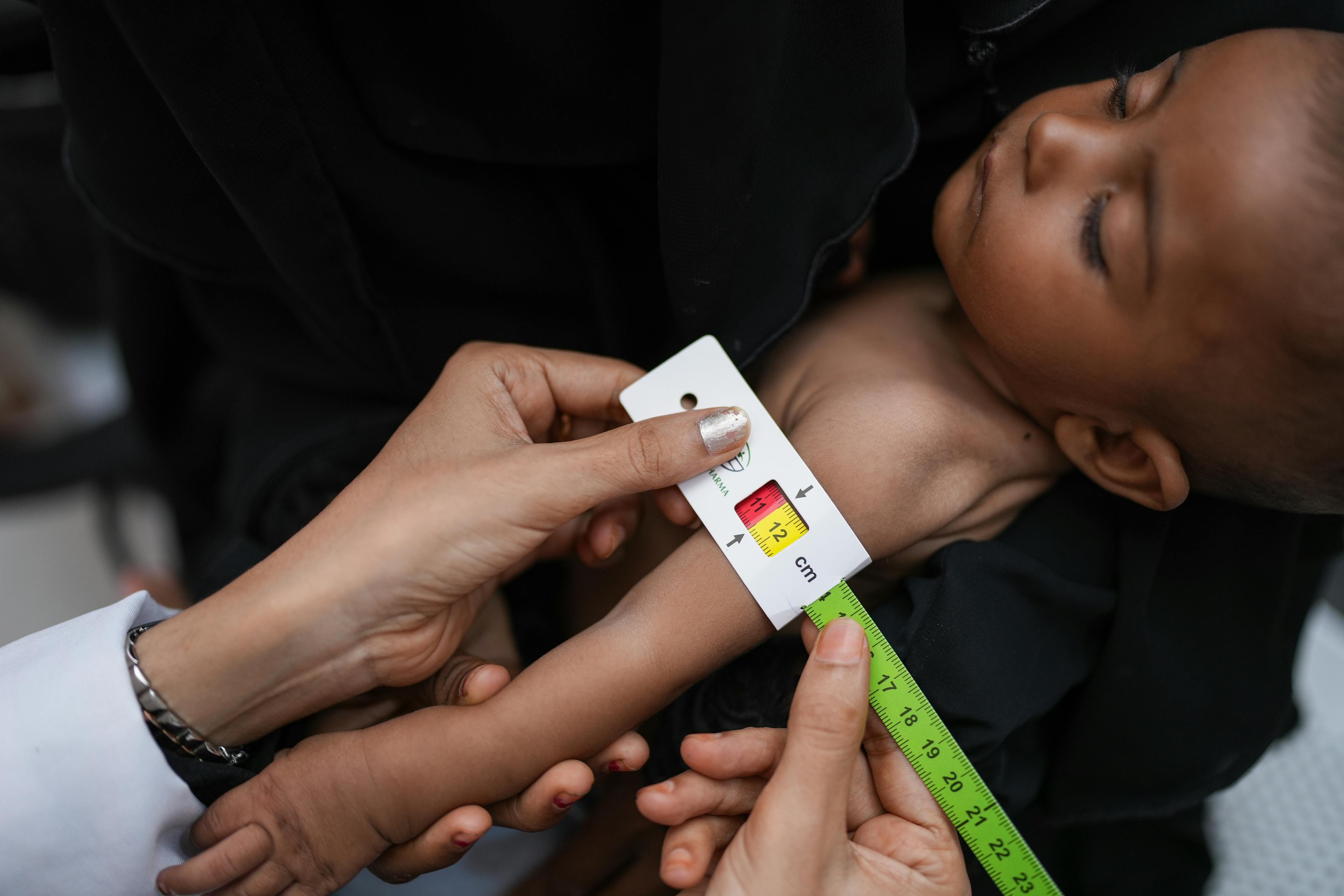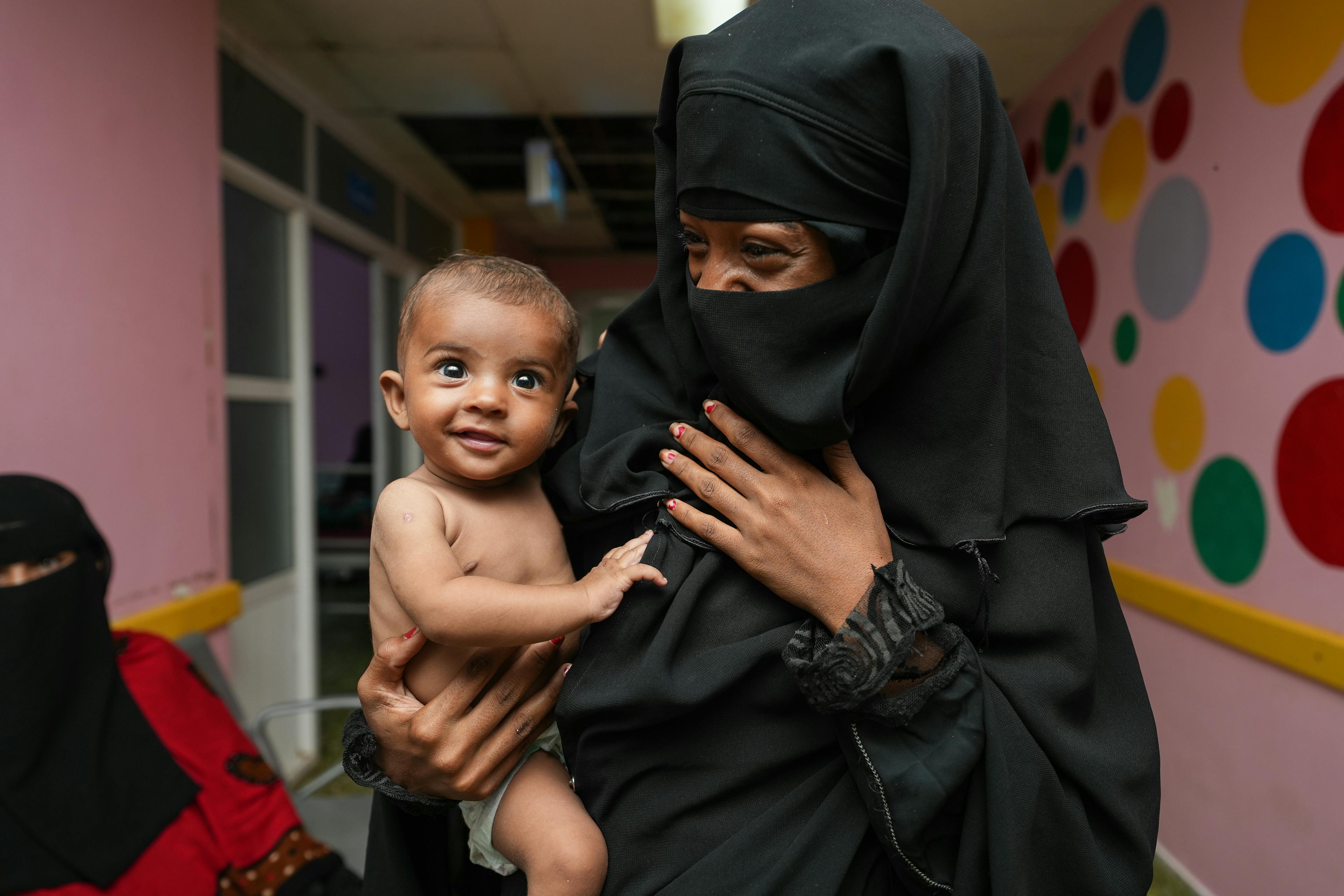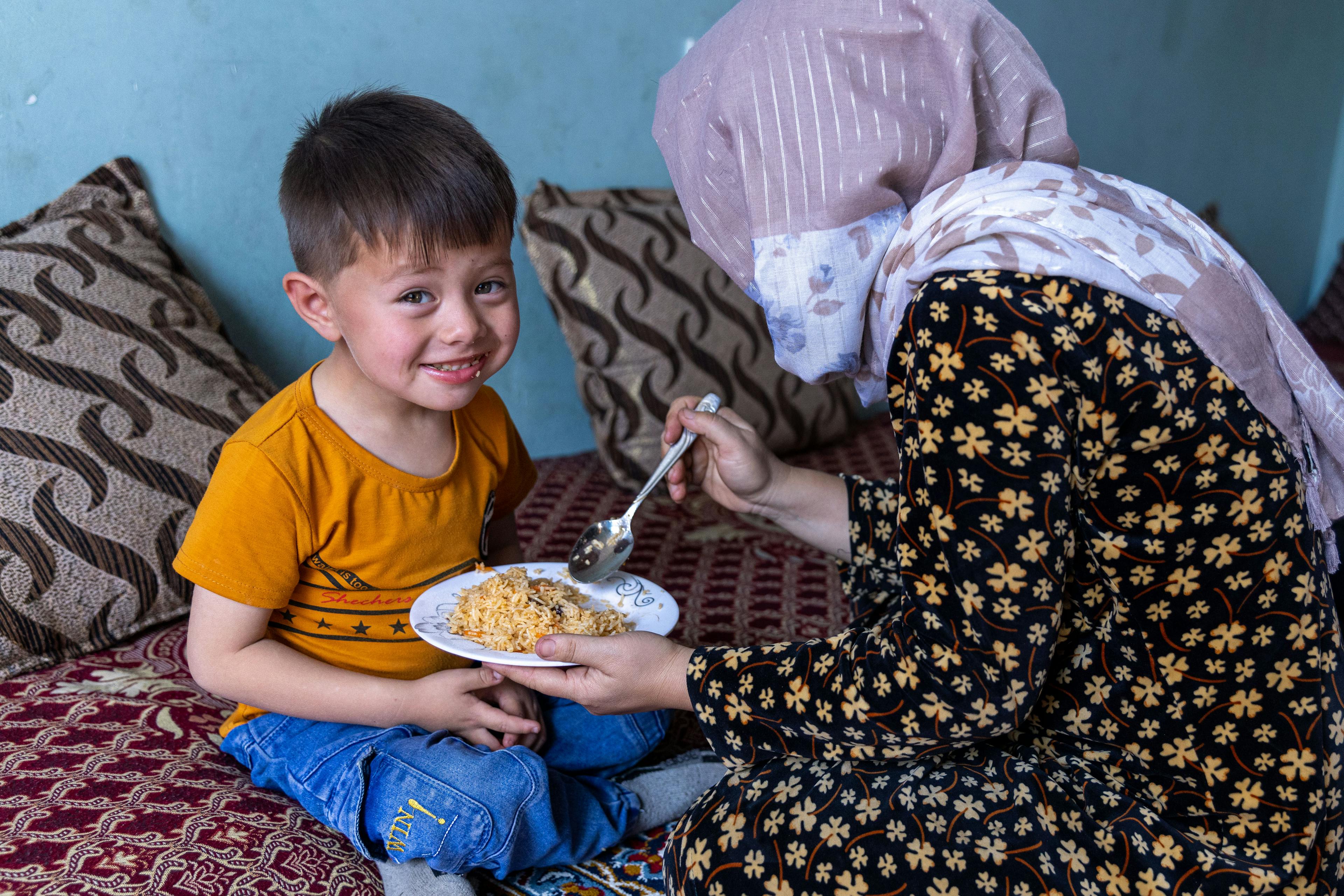
UN0594277
Treating Malnutrition
Home
Stories
Treating Malnutrition
We’ve covered prevention and detection in our three-part series on UNICEF’s integrated approach to the global children’s malnutrition crisis. Now for our last instalment, let’s talk treatment.

UN0852929
TREATMENT CENTRES
UNICEF-supported nutrition centres provide kids and their families with preventive care as well as treatment for malnutrition in all its forms – even the most severe and life-threatening cases.
4-month-old Sanad, like millions of other children in Yemen, was suffering from severe acute malnutrition. Otherwise known as severe wasting, it’s prevalent in this war-torn country.
Sanad, had been vomiting and suffering from diarrhoea so his mother Raneem took him to the nearest treatment centre. “Everything was provided for free .... they received my son and started treating him immediately,” says Raneem.
After two months at our Therapeutic Feeding Centre Sanad was able to continue his recovery at home. Another month later he was back to his bubbly self. “I can see how much he has changed, my baby is finally smiling and laughing. It makes me so happy,” reflects Raneem.

UN0852922
MICRONUTRIENT SUPPLEMENTATION
Not all signs of malnutrition are easy to see, like iodine and iron deficiencies. We use micronutrient supplements to prevent and treat them! They help protect children’s physical growth, eyesight, immunity and brain development. Supplements are given to parents at community health posts, though health workers also go door-to-door, ensuring children who really need them aren’t missed if their parents can’t make the journey.
Zahra brought her 4-year-old son Mokhtar to a UNICEF-supported clinic because he kept getting sick. They taught her how to mix the micronutrient powder with his meals to add critical vitamins and minerals. Before long he was happier and full of energy. These sachets are truly life-changing for families who cannot afford or access diverse and nutritious foods. They’re also a great source of nutrients for expecting mothers and can prevent low birthweights.

UN0820018
IN EMERGENCIES
The world is facing an unprecedented number of humanitarian situations today. Conflicts, natural disasters, and devastating food insecurity grip communities around the world. It’s women and children that bear the heaviest burden.
Planning and emergency preparedness are the foundations of our response.
When disaster strikes, UNICEF is on the ground delivering emergency nutrition to the children and families who need it most. Malnutrition poses an immediate threat to children’s lives during emergencies. The devastating impacts on their physical growth and cognitive potential can last long after a crisis has passed.
Millions of children in Syria are at heightened risk of malnutrition after more than a decade of conflict, a declining economy, and the deadly earthquakes in 2023. Especially those displaced by fighting and living in rural areas.

UN0634998
Abir started to visit a UNICEF-supported mobile health team once a week to provide her malnourished one-year-old son Ishak with the vitamins and nutritional supplements he needed. “Whenever I missed an appointment for some reason, they’d call and check on him and remind me to come for a follow-up appointment. The support we received from them has been great!”. When he first came in for treatment, Ishak was very thin and fatigued. Within a week of treatment his appetite returned, and he started gaining weight.
We'll continue to help governments prepare for emergencies by identifying risks, building responsiveness, collecting data, and monitoring malnutrition - so they’re ready to plan, strategise, scale up, and effectively coordinate nutrition programmes and services when emergencies strike.

UN0634996
READY-TO-USE THERAPEUTIC FOODS
Ready-to-use therapeutic foods, or RUTF for short, is a peanut-based paste that can be eaten straight from the packet. It’s full of calories, micronutrients, vitamins, and minerals that help children get to a healthy weight within six to eight weeks. It has a two-year shelf life and doesn’t have to be refrigerated so it’s convenient to pre-position in our supply warehouses and is easy to transport to remote and rural villages.

UNI593561
RUTF was an integral part of the treatment plan for 7-months-old Genan who was severely malnourished and underweight. After two months of treatment Genan’s health improved and she gained more than two kilograms.
UNICEF procures almost 80 per cent of the world’s RUTF. With demand for RUTF increasing, more funding is needed to reach children with this simple yet incredibly effective treatment that can mean the difference between life and death.
We have the expertise, experience, and means to save millions of children from severe malnutrition and death. With greater investments, we can prevent malnutrition before it starts, provide lifesaving treatment when prevention fails, and build resilience among children, families, and communities.
We know what works – and with your support, we have the power to make it happen. It’s time to scale up the solutions!

UN0535873
